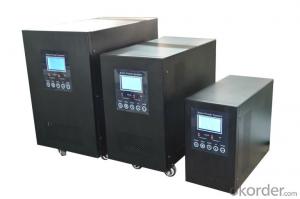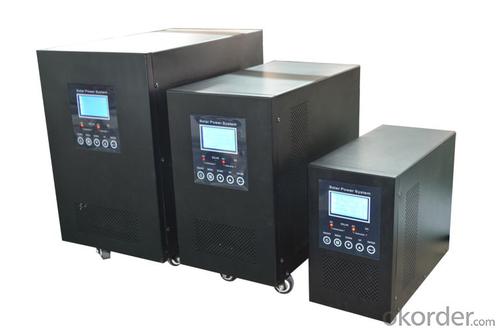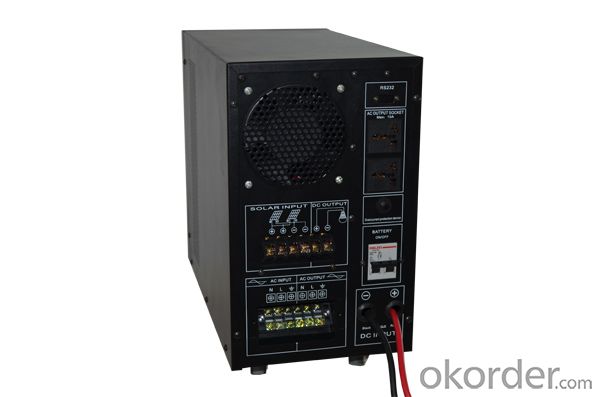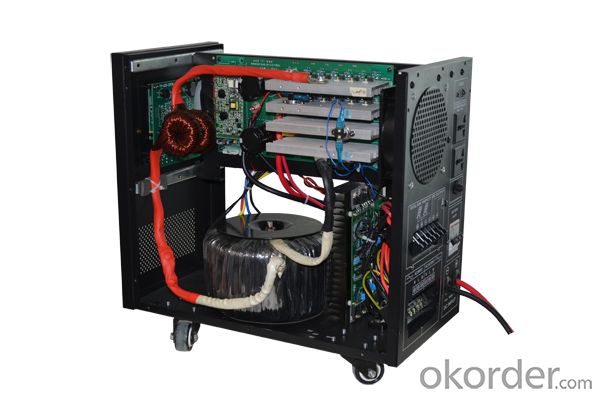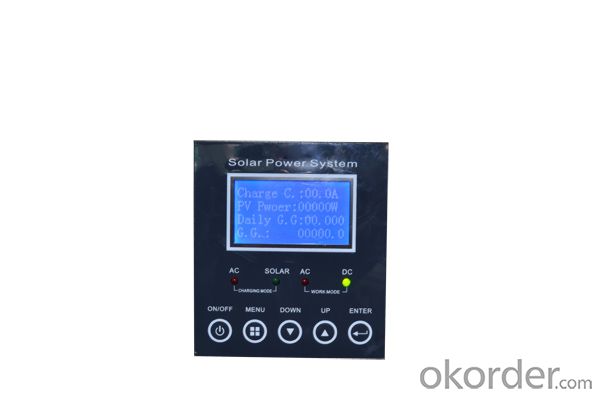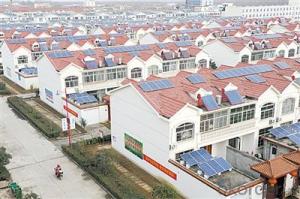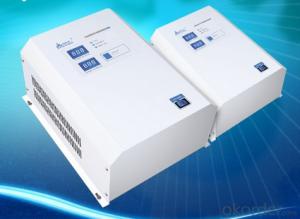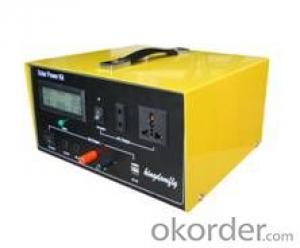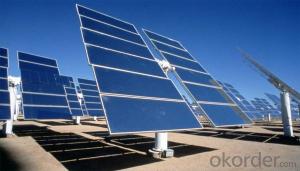Solar Energy Systems Maine:Solar Generator Intelligent Inverter with Charger
- Loading Port:
- Guangzhou
- Payment Terms:
- TT OR LC
- Min Order Qty:
- 50 pc
- Supply Capability:
- 100000 pc/month
OKorder Service Pledge
OKorder Financial Service
You Might Also Like
Solar Generator Intelligent Inverter with Charger
Feature
XZ-NK New intelligent inverter with built in controller realize to combine display of inverter and solar controller, which is different with tranditional solar generator.
2.With great function,display the parameter of solar controller and inverter at the same time, includes grid voltage, frequency, input voltage, input frequency, input wattage,output load precent,battery capacity precent,PV voltage, battery voltage, charge current,PV power, daily power generation, total power generation etc;
3.Realize customer self setting PV priority or Battery priority, setting of battery type,charge voltage, charge current, charge limit and so on;
4.Have time colock, timing turn on and off, keep record of fault, fault query more function.
5.Also with normal funtion of inverter, like protection against battery under voltage,over-voltage,overload,short circuit.
Aplication:
Mobile Charge,PC,Lighting Fixture,TV, Fan,Refrigerator,washing machine,air condition, water pump,safety products, professional tool, equipment etc any wattage electrical appliance.
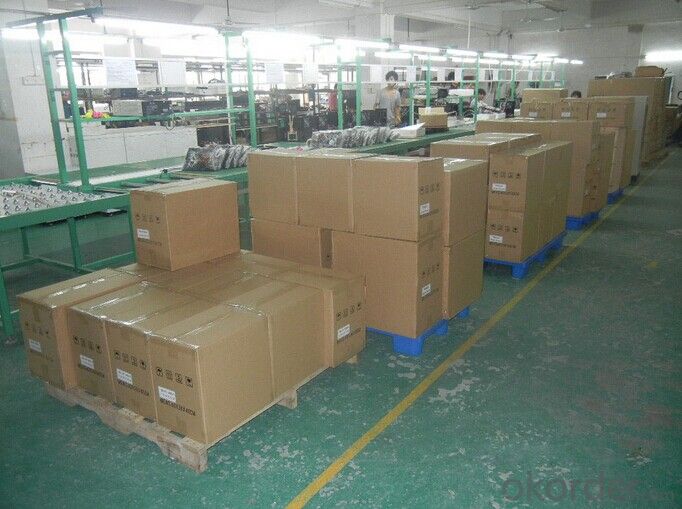
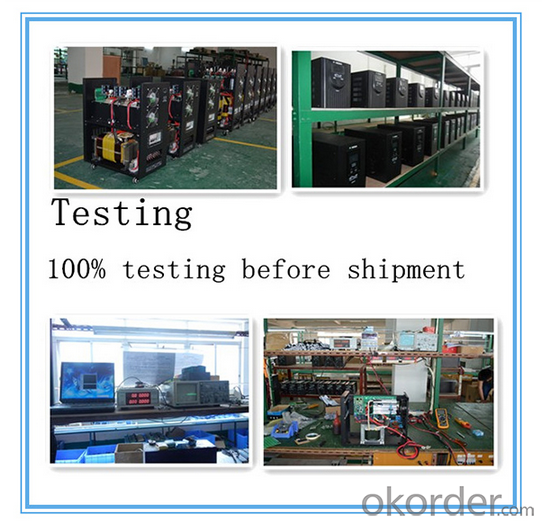
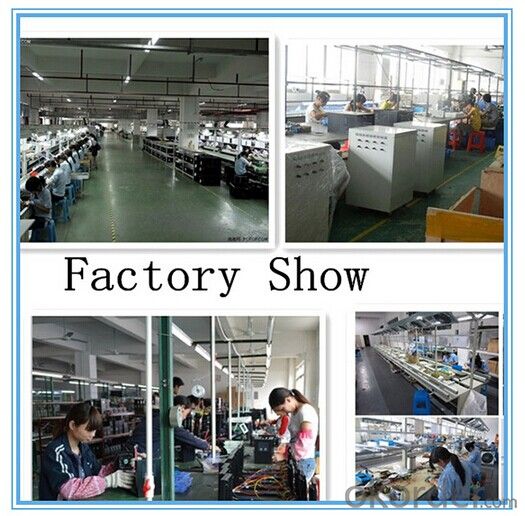
Product Parameter
| Specification: | ||||||||||
| Model XZ-NK | 50112-20 | 10224-30 | 20248-50 | 50296-50 | 70296-50 | 103192-50 | 153192-100 | 203192-100 | ||
| PV Charging Method | Direct Charge/PWM/MPPT | |||||||||
| PV Max input current | 20A | 30A | 50A | 50A | 50A | 50A | 100A | 100A | ||
| PV Rated input voltage | 12VDC | 24VDC | 48VDC | 96VDC | 96VDC | 192VDC | 192VDC | 192VDC | ||
| PV Max input wattage | 240W | 720W | 2400W | 4800W | 4800W | 9600W | 19200W | 19200W | ||
| PV Max input voltage | 18VDC | 36VDC | 72VDC | 144VDC | 144VDC | 288VDC | 288VDC | 288VDC | ||
| PV Charging efficiency | 99% | 99% | 99% | 99% | 99% | 99% | 99% | 99% | ||
| Battery Rated input voltage | 12VDC | 24VDC | 48VDC | 96VDC | 96VDC | 192VDC | 192VDC | 192VDC | ||
| Battery input voltage range | 9VDC-18VDC | 18VDC-36VDC | 36VDC-72VDC | 84VDC-120VDC | 84VDC-120VDC | 168VDC-240VDC | 168VDC-240VDC | 168VDC-240VDC | ||
| Protection function (PV Charge part) | Reverse connection, short circuit, overcharge, anti charge protection | |||||||||
| AC input voltage | 75VAC-125VAC Or 145VAC-275VAC | |||||||||
| AC input frequency | 45HZ-65HZ | |||||||||
| Invert output | 110VAC±2% Or 220VAC±2% | |||||||||
| Invert output Frequency | 50HZ±0.5HZ Or 60HZ±0.5HZ | |||||||||
| Display | LCD | |||||||||
| Rated Capacity | 500W | 1000W | 2000W | 5000W | 7000W | 10000W | 15000W | 20000W | ||
| Inverter structure | Low Frequency Structure | |||||||||
| no-load power consumption | 8W | 15W | 30W | 75W | 75W | 150w | 150W | 150W | ||
| Conversion efficiency | ≥85% | |||||||||
| Mains input charging current | 0-15A(Adjustable) | |||||||||
| Working mode | AC first /PV first(Optional) | |||||||||
| Conversion time | ≤4ms | |||||||||
| Overload capacity | Overload exceeds 110%,automatic shutdown in 30 secs;Overload exceeds 120%,automatic shutdown in 2 secs;Under mains supply mode, it will not shutdown. | |||||||||
| Output waveform | Pure sine wave | |||||||||
| Work environment | Temperature0-40℃,Humidity10-90% | |||||||||
| Thermal methods | Forced Air Cooling | |||||||||
| Protection function (inverter part) | mains over / under-voltage, higher DC current/ under-voltage, short circuit of inverter output | |||||||||
| Output waveform distortion | ≤3% | |||||||||
| Size | Product Size(mm) | 300×170×280 | 422×225×360 | 491×281×430 | 580×350×700 | |||||
| Packing Size(mm) | 350×220×330 | 472×275×410 | 551×341×490 | 660×410×740 | ||||||
| KG | 8KG | 10KG | 18KG | 36KG | 48KG | 55KG | 75KG | 95KG | ||
| Note | All specifications are subject to change without prior notice | |||||||||
- Q: What is the maintenance schedule for a solar energy system?
- The maintenance schedule for a solar energy system typically involves regular inspections and cleanings to ensure optimal performance and efficiency. Additionally, it is recommended to check the connections, wiring, and inverter functionality periodically. Most manufacturers provide guidelines on maintenance tasks, and it is advisable to follow their recommendations to ensure the longevity and reliability of the system.
- Q: What are the maintenance costs associated with solar energy systems?
- Compared to other forms of energy generation, solar energy systems generally have low maintenance costs. Solar panels themselves require minimal maintenance due to their lack of moving parts. However, there are a few important components that may need periodic maintenance or replacement. The cleaning of solar panels is one of the main maintenance costs. Over time, dust, dirt, and debris can build up on the surface of the panels, reducing their efficiency. Regular cleaning, which is typically carried out using water or a soft brush, helps ensure optimal energy production. Another maintenance cost involves inspecting and repairing electrical connections and wiring. These components are crucial for converting the sun's energy into usable electricity. Regular inspections can detect any loose connections or damaged wiring that may hinder the system's performance. Additionally, inverters, which convert the direct current (DC) generated by the solar panels into alternating current (AC) used in homes and businesses, may need to be replaced after a certain period. Inverter replacement is usually necessary every 10-15 years, depending on the manufacturer and usage. In conclusion, the maintenance costs associated with solar energy systems are relatively low compared to the long-term savings and benefits they offer. It is advisable to hire a professional solar installer or technician to perform regular inspections and maintenance to ensure the system operates efficiently and maximizes its lifespan.
- Q: Can solar energy systems be financed or leased?
- Yes, solar energy systems can be financed or leased. Many companies offer financing options for homeowners and businesses to install solar panels and other solar energy systems. These financing options allow the cost of the system to be spread out over a period of time, making it more affordable for customers. Additionally, leasing options are available where the solar panels are owned and maintained by a third-party company, and the customer pays a monthly lease fee for the use of the system. These financing and leasing options have made solar energy more accessible to a larger number of people and have contributed to the rapid growth of the solar industry in recent years.
- Q: Can a solar energy system be installed in a coastal area?
- Yes, a solar energy system can be installed in a coastal area. In fact, coastal areas can be ideal for solar installations due to the abundance of sunshine and the potential for strong winds, which can help keep the solar panels cool and increase their efficiency. However, it's important to consider the potential impact of saltwater corrosion on the system's components and to use appropriate materials and maintenance practices to ensure its longevity.
- Q: Can solar energy systems be used for powering security cameras?
- Certainly, security cameras can indeed be powered by solar energy systems. The conversion of sunlight into electricity by solar panels enables the storage of energy in batteries or direct powering of different devices, such as security cameras. Consequently, solar energy emerges as an excellent and sustainable option for remote or off-grid areas where the installation of electrical cables might pose challenges or incur high expenses. Moreover, solar-powered security cameras possess the advantageous ability to function without interruption, provided there is an ample supply of sunlight to generate electricity. Consequently, they prove to be a dependable and environmentally friendly alternative for surveillance systems.
- Q: How does solar energy impact property values?
- Solar energy can have a positive impact on property values as it is considered a desirable feature by many homebuyers. Homes with solar panels typically sell faster and at a higher price compared to similar properties without solar installations. This is because solar energy can significantly reduce or eliminate electricity costs, making the property more affordable to maintain. Additionally, solar energy contributes to a greener and more sustainable lifestyle, which is increasingly valued by homeowners.
- Q: Can a solar energy system be installed in areas with high pollution levels?
- Yes, a solar energy system can still be installed in areas with high pollution levels. While pollution can reduce the efficiency of solar panels, it does not completely prevent them from functioning. Solar panels can still generate electricity even in polluted areas, although their output may be slightly lower compared to cleaner environments. It is worth noting that pollution can cause the accumulation of dust and dirt on the surface of solar panels, which can further reduce their efficiency. Regular cleaning and maintenance of the panels can help mitigate this issue and ensure optimal performance. Furthermore, installing solar energy systems in areas with high pollution levels can have additional benefits. By using solar power instead of traditional fossil fuel-based sources, it can help reduce the overall pollution levels and improve air quality in the long run. This can have positive impacts on both human health and the environment. In conclusion, while pollution can have some impact on the efficiency of solar energy systems, they can still be installed and generate electricity in areas with high pollution levels. Additionally, the use of solar power can contribute to reducing pollution and improving the overall environmental conditions in such areas.
- Q: Can a solar energy system increase the value of my home?
- Your home's value can be increased by installing a solar energy system. Potential buyers view this as a valuable investment due to the financial and environmental advantages it offers. One benefit is that solar panels can significantly decrease or even eliminate your monthly electricity bills, which is appealing to prospective homeowners. This leads to long-term savings for the new owners, making the property more attractive. Additionally, solar panels are considered an eco-friendly and sustainable energy solution, which is becoming increasingly important to many homebuyers. As the world moves towards a more environmentally conscious future, properties with solar energy systems are seen as highly desirable and can attract a wider range of potential buyers. Studies have proven that homes with solar panels sell faster and at higher prices compared to similar properties without them. The Lawrence Berkeley National Laboratory conducted research that revealed homes equipped with solar panels typically sold for an additional $15,000 compared to those without solar. This demonstrates that solar energy systems can indeed increase the value of your home and provide a return on investment. It is important to consider various factors, such as the size and efficiency of the solar energy system, the local real estate market, and the overall condition of your property, as these will determine the extent of the value increase. Seeking advice from a real estate professional who specializes in sustainable homes can provide you with more precise information regarding the potential value increase of your home. In conclusion, installing a solar energy system can enhance your home's value by reducing energy costs, appealing to environmentally conscious buyers, and potentially selling at a higher price. With the increasing focus on renewable energy, investing in solar power can be a wise decision that not only benefits you financially but also contributes to a greener future.
- Q: Are there any government grants or funding options for solar energy systems?
- Yes, there are government grants and funding options available for solar energy systems. Various government agencies and programs offer financial incentives, such as grants, loans, tax credits, and rebates, to encourage the adoption and installation of solar energy systems. These incentives aim to promote renewable energy, reduce reliance on fossil fuels, and support the growth of the solar industry. It is recommended to research and consult with local government entities, utility companies, and relevant federal programs to explore the specific grants and funding options available in a particular region.
- Q: Can solar energy systems be used in areas with limited land availability?
- Yes, solar energy systems can be used in areas with limited land availability. There are various types of solar energy systems that can be installed in such areas, including rooftop solar panels, solar parking canopies, and solar walls. These systems utilize the vertical space available and can be integrated into existing structures, making them suitable for areas with limited land availability. Additionally, advancements in solar technology have made it possible to generate more electricity from smaller areas, further increasing the feasibility of solar energy systems in limited land areas.
Send your message to us
Solar Energy Systems Maine:Solar Generator Intelligent Inverter with Charger
- Loading Port:
- Guangzhou
- Payment Terms:
- TT OR LC
- Min Order Qty:
- 50 pc
- Supply Capability:
- 100000 pc/month
OKorder Service Pledge
OKorder Financial Service
Similar products
Hot products
Hot Searches
Related keywords
